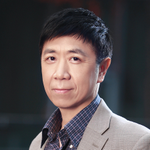- 开场致辞:数字化转型对话
Alain Benichou•Alan BeebeWhat do business leaders need to How has COVID-19 changed the business world fundamentally? What kinds of core differentiators are companies that outperform adopting? In light of ambitious sustainability goals, what kinds of technologies and innovations are beneficial for carbon neutrality?
- 主题演讲:共建可持续未来
洪小文Addressing sustainability is top of mind for executives, consumers and investors. This is not only the shared responsibility of every company, but presents new business opportunities to create value. Hon will share the Microsoft's position and progress on Sustainability, and the areas where opportunities exist for everyone to build a more sustainable future together.
- CEO 座谈会:企业高管畅谈未来工作方式转变
孙洁•郑磊•Dr. Wendy Purcell•陆坚•陈煜波Hybrid work has been a hot topic of discussion and debate in businesses and the media outside China as the global workforce is gradually returning to the reopened workplace after more than a year of working from home. Recognizing that the COVID pandemic hasn’t actually ended and plenty of uncertainty remains, businesses have realized that they are not returning to a “pre-pandemic normal” but a “new normal” with a hybrid model. Microsoft CEO Satya Nadella says this hybrid model represents “the biggest shift to how we work in our generation,” and believes it will require “a new operating model, spanning people, places, and processes.”
In China, however, the COVID outbreak has been contained much earlier and more completely. Businesses have largely returned to their pre-pandemic normal for more than year with some continued control measures in response to scattered resurgences of COVID cases.
Should businesses in China adopt the hybrid model? This panel brings together top executives from China-based companies and leading scholars in public health and economic policies from both China and the US to discuss hybrid work, aiming to provide insights and perspectives around the following questions:
• What is “hybrid work” and how is it different from “flexible work”?
• What are employers doing now in talent and work management to seamlessly fit in a hybrid workplace across both home and office?
• What are the impacts on people and society as hybrid work becomes a widely implemented model?
• How should businesses in China approach and implement the hybrid model? - CMO 座谈会:市场总监分享全球数字参与战略
何新•周雁冰•李怡•卢刚Successful branding and marketing strategies are what set iconic brands in a class of their own. Even the most celebrated global companies might not strike upon the right formula to thrive in the uniquely complex and evolving China market. Companies that do effectively adapt for China might even enjoy a boost in brand equity and tap into a vital source of domestic innovation that could benefit their other markets. Similarly many of China's strong local innovators have developed novel products and services positioned to capture overseas markets, if they can find the right channels and master different rules of engagement.
- 主题演讲:“从指数型组织到指数型商机”
韩焱Leaders of "digital-first" organizations ensure their operations and business model are aligned for exponential growth. They can future-proof their companies by fundamentally applying design thinking and scaling principles into their organizational development and strategic planning roadmaps. Han will share about the mindset and tools that will help leaders and their teams position themselves for long-term success in the digital era.
- CXO座谈会:重塑中国的关键技术与数据运营
车品觉•Jonathan Liao•林志红Executing a digital strategy to create real-world business value is rooted in many technical challenges down to the technology stack and data operations. To unlock the promises gains of digital transformation, technology and business leaders need to build tightly-integrated and tangible bridges between service delivery and actionable digital assets. Hear from pioneers in their field about leading approaches to not only “navigate” the China market, but establish themselves as digital leaders.
- 政策讨论:数据和云
向冀•Chris Millward•Ramesh Moosa•Mark ParsonsToday's global leaders looking to apply tech-driven business strategies face looming uncertainties about data, cloud computing, networks, and hardware.
• Data sovereignty: the growing regulatory demand and cloud provider services to govern data within national boundaries. Is this potentially a workable fix?
• New constraints and uncertainties around cloud computing.
• Network security and funding new network infrastructure internationally.
• What might new regulatory restrictions or oversights mean for Chinese tech listings overseas and the competitive landscape?
• Semiconductors: what might be the mid-term consequences of massive independent national investment in semiconductor innovation? - 闭幕致辞
- 穿越噪声的决策
Huan Dong•檀林•Xiaoqing Zhang主题《穿越噪声的决策》
1)简介
为什么我们的判断会出错?诺贝尔经济学奖得主卡尼曼,让人类意识到了“偏差”的存在,避免了很多严重问题的发生。现在,他又帮助我们找到了另一个隐藏在暗处,而且无处不在的决策陷阱,那就是“噪声”。
2)说明细分的受众群
投资者、管理者、政策制定者、职场人士,所有需要做判断、做预测的人;
3)将有什么takeaway(收获)
你会知道:
噪声是什么?
噪声的危害有多大?为什么会让公司每年损失数亿美元?
噪声是如何左右你的判断的?
为什么我们从来没有意识到噪声的存在,总是反复犯同样的错误?
我们该如何降低噪声的危害,提高决策的质量?








































